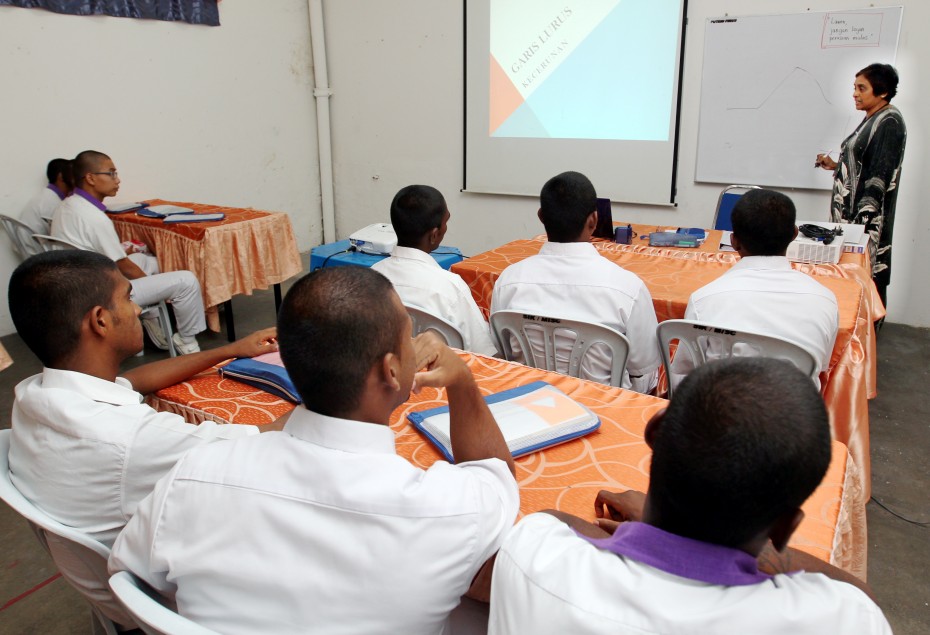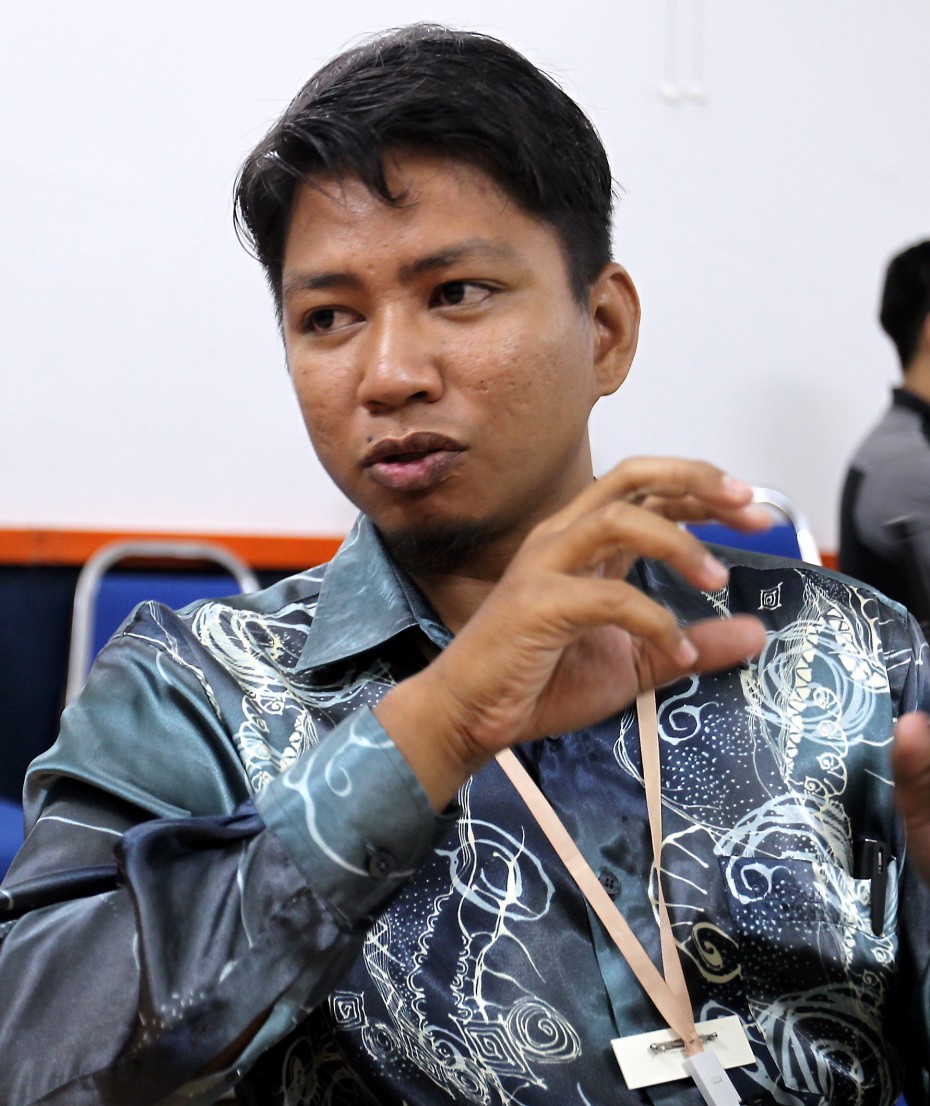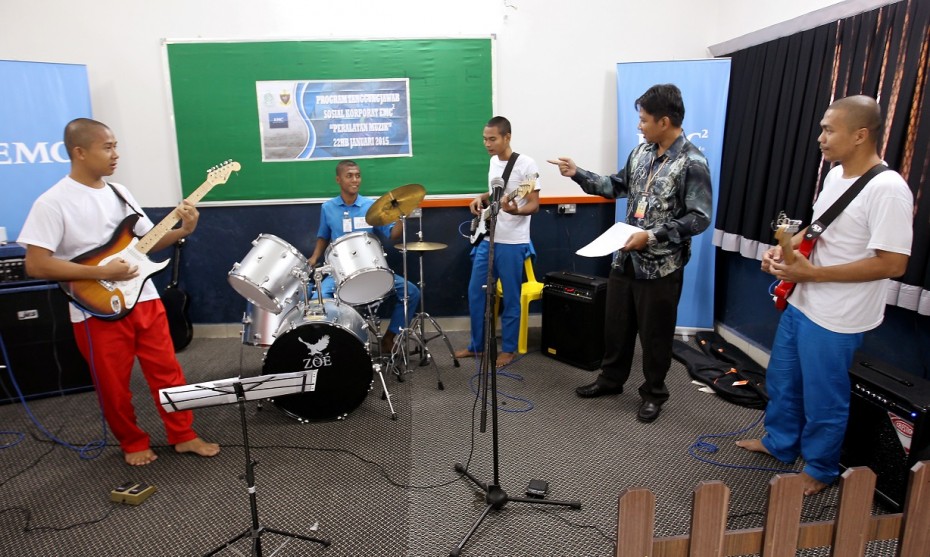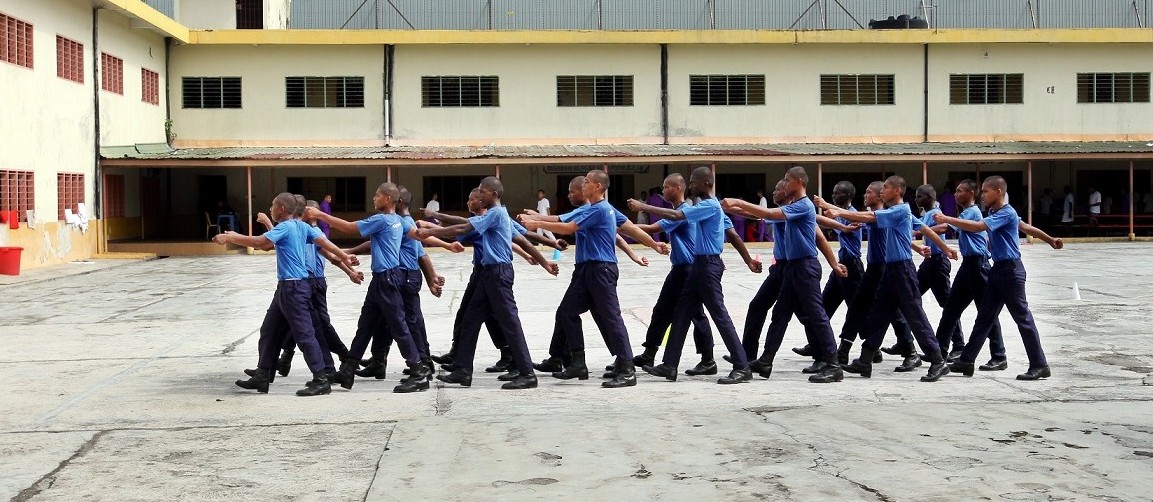By LIM MAY LEE
alltherage@thestar.com.my
THERE is a wall in Sekolah Integriti Kajang (SIK) that bears the quote “Kegagalan pertama tidak ianya terus gagal, tetapi ianya akan membangkitkan cita-cita yang bersemangat lagi teguh”.
It means one failure doesn’t lead to constant failure; instead, it makes one’s ambitions stronger.
It might seem like a strange quote for a school, but this is no ordinary school.
SIK sits in the Kajang Prison compound, surrounded by high concrete walls and under heavy guard.
One of eight Sekolah Integriti schools in the country created to educate young prisoners, it aims not only to rehabilitate its inmates, but also help them leave with a future in the form of an SPM certificate or vocational training.
While it looks forbidding from the outside, it looks almost like a regular school inside, albeit more walled up and with barred steel doors. There is the regular school buzz that comes from boys, ranging from age 14 to 21, busily going about their day, heading to class clutching folders and stationery. These boys, however, have matching buzz cuts and prison-issue rubber slippers.
They’re in there for crimes ranging from theft to rape and even murder, which is hard to believe when they smile and courteously stand aside to let visitors walk past.
“I feel I’ve become a better person because of the discipline here,” said Aiman, 21. The SPM student is serving a three-year sentence for a robbery he committed with his friends.
“Back then, I was young and stupid,” said the oldest of five siblings. “My parents were very sad and angry when they found out, asking me why I didn’t listen to them. It’s too late for me now, but not for my younger siblings, so I’ve told them to make better choices and friends.”
Aiman has no plans to return to his previous life of crime or even get in contact with his old friends.
“I hope to continue my studies and take up culinary arts when I get out in about nine months,” he said.
“Before I ended up here, I loved to cook for my family. I want to open a restaurant one day.”

The young prisoners actively participate in class, and help each other with schoolwork in their cells after school.- Photo: S.S.KANESAN/The Star
Bad company
Eliza Jeremiah, the assistant supervisor for academics at SIK, said many of the young prisoners ended up there simply because they fell in with bad company.
That was the case with Ram, 21, who was sentenced to five years in jail for armed robbery.
“I got into my friend’s car, thinking we were going to buy things from a shop,” said the soft-spoken young man, who dreams of travelling and working in Australia.
“Then, my friends pulled out parangs and robbed the place. I guess they didn’t have the money to pay.”
Ram claims he left the scene when he realised what was happening, but was arrested and charged with aiding and abetting the crime.
“Not all of them are from underprivileged backgrounds,” said Eliza. “There are wealthy kids as well.” There is a young prisoner there for dealing drugs who is now studying for his SPM, while his older brother pursues mechanical engineering in the United States.
“He told me: ‘Teacher, I had everything. But I was greedy and ended up here’,” Eliza said.
But regardless of circumstance and background, all the young prisoners in SIK are treated equally, and have the same opportunities to improve themselves and better their futures.
Those who are academically oriented are encouraged to study for SPM, while those who aren’t do vocational courses instead.
“We have boys who take up culinary arts, sewing, and even barbering courses,” she said proudly. “It shows they are preparing for a life doing honest work, which is what we’re aiming for.”
She said there’s a phrase those working with the inmates use to describe their work: “Tiga bulan pertama, kita membanduankan manusia. Selepas itu, kita memanusiakan banduan”. During an inmate’s first three months, their job is to turn the human into a prisoner. After that, it’s about keeping the prisoner human.
By “humanising” them – giving them life skills and education – these Sekolah Integriti are doing their part to ensure young prisoners never come back as adult prisoners.

SIK music teacher, Sapran bin Suhurani, believes that the ability to make music gives the young prisoners a brief escape from their lives. -Photo: S.S.KANESAN/The Star
To help achieve that, tech company ECM sponsored equipment for a music room in January.
“There are many boys here who surprised us with their talent,” said music teacher Sapran Suhurani, adding that they were quick and eager to learn.
Since then, the otherwise bleak concrete prison block has echoed with music, and during our visit, we saw the prisoners joking with the guards, teachers and each other while jamming in the music room.
Co-curricular activities aside, SIK also doesn’t just stop at SPM level – those who do well have the option of doing a degree (long-distance, of course) thanks to the prison school’s cooperation with Open University Malaysia.
“This year, five boys applied to Unit Pusat Universiti (the government body that handles applications to local universities),” said Eliza. “They are determined to not let their time here hold them back forever.”

In January, tech company EMC sponsored the equipment for a music room in SIK. Since then, the corridors of SIK frequently echo with music, a lovely touch in an otherwise bleak building. -Photo: S.S.KANESAN/The Star
All names of the inmates have been changed.
What’s a Sekolah Integriti?
■ Founded in 2008, there are now a total of eight Sekolah Integriti (SI) nationwide, each aiming to rehabilitate and educate its inmates.
■ SIs follow the syllabus of a regular Malaysian school with classes from 8am to 1.40pm daily, followed with co-curricular activities until 5pm.
■ Sekolah Integriti Kajang (SIK) has over 200 juvenile prisoners
■ Prisoners above 20 who lack an SPM certificate may sit for SPM without enrolling in the school.
■ Inmates who are accepted into the Open Universiti Malaysia (OUM) distance learning programme attend tutorials conducted by OUM tutors within the prison. They are supported by OUM’s online learning management platform (myVLE) where they manage their studies and submit their assignments, and also have access to the Tan Sri Dr Abdullah Sanusi Digital Library.







Tell us what you think!